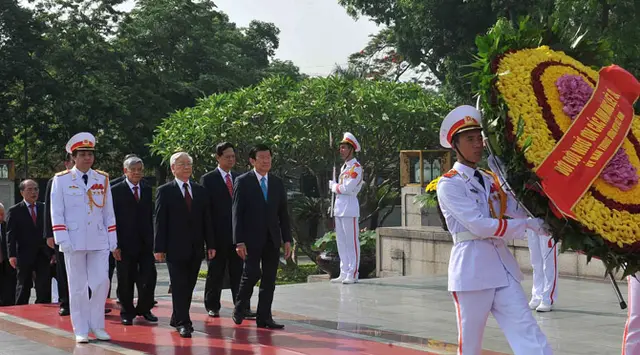By APD Writer Wang Peng
As the Reuters reports, Donald Trump will travel to Asia in November for the first time since becoming American president, who will stop in Japan, South Korea, China, Vietnam and the Philippines on a trip.
Trump will travel Nov. 3-14. His visit will include attending two major summits, the Asia-Pacific Economic Cooperation forum in Vietnam and the Association of Southeast Asian Nations conclave in the Philippines.
Is this trip expected to be dominated by the Democratic People’s Republic of Korea (DPRK) nuclear threat?
***Absolute yes. ***
Does the United States appear weaker in Asia?
With Trump visit, and the USA has abandoned the TPP, the world media are wondering that whether the United States appear weaker in Asia, especially in Chinese eyes.
‘No clearly yet’ is my answer. Now, we can NOT say that the US appears weaker to Asia. First, in security, the US still remains the most powerful navy (as well as Marine Corps) in Asia-Pacific region.
Second, the US still maintains a large economic influence in this region. Even China cannot break its economic-trade ties with America, which offers China its largest portion of import surplus.
How does China view President Trump?
Some western media are also curious that how Trump is seen by Chinese leadership. Is he considered as dangerous, unpredictable, or just a ‘paper tiger’? None of these options is correct.
Certainly, Trump is no longer considered dangerous, since he has been trapped by a wave of criticism and enemies, both within and outside the Whitehouse, both at home and abroad, either by inheriting his predecessors’ rivals (e.g. DPRK, America’s permanent foe) or made by himself (e.g. Iran that Trump threats to tear up an agreement of Iranian Nuclear Joint agreement)
He is still unpredictable, as well as his members of cabinet. However, this uncertainty no longer poses mental anxiety or strategic deterrence to Trump’s opponents in Beijing. Rather, his (and his man’s) inconsistent statement about world and regional essential affairs (such as India-China-America relations) weakened the strategic credibility of Washington itself to a larger extent.
American should enhance its strategic credibility
The loss of ‘strategic credibility’ has made ample disadvantages against American international interest. For example, Under Trump’s Administration, we have seen that the Philippines becomes
more friendly to China. It is Trump (also partially due to Obama Administration) effect of pushing more countries closer to China.
The closing up between Manila and Beijing, is initially driven by the failed coup d'état against Rodrigo Duterte during the Obama Administration. That reminds this ‘unusual and abnormal’ leader keeping an eye to American- Philippine military special and traditional ties. This strong connection may offer some Philippine generals power to say no to Duterte. As a result, this horrified strong man of a small state turned his face to Beijing to hedge the increasingly threatening impact from Washington. Trump just continued this trend; not because of him.
Finally, when we comes to the thaw in relations between China and South Korea, and also some goodwill gesture between China and DPRK, we may expect some new approaches to ease this tensions.
For example, China and South Korea are trying to find some ways to reconsolidate their deteriorating bilateral relations after the deployment of THAAD. This is good news for people in two countries. Second, no signal to show China and DPRK has agreed some approaches to deal with the nuclear issue. Up to now, no clear method is generated by any side amongst the six parties.
So we may deduce that it means China will choose a softer approach to resolve its THAAD problem with South Korea. But for DPRK, especially the final and complete resolution of the nuclear issue, it may depend on Sino-American game and bargains during Trump’s visit this month.
To conclude, China welcomes Trump’s visit, but whether the problems in front of China and America could be solved relies on their mutual trust and sincere cooperation. That is still a tough task.
Wang Peng,
Researcher of APD Institute, Research Fellow at the Charhar Institute and China Institute of Fudan University.
(ASIA PACIFIC DAILY)
 简体中文
简体中文

